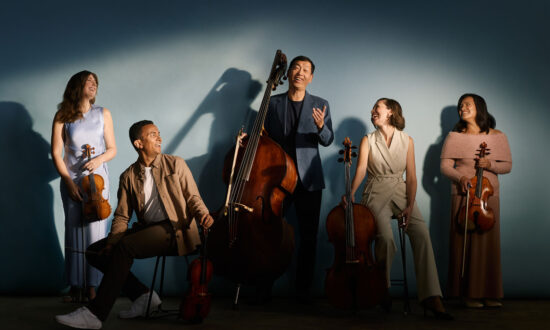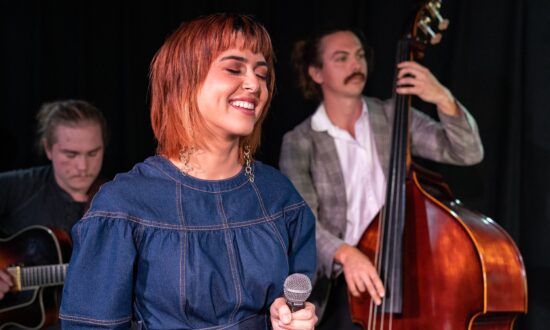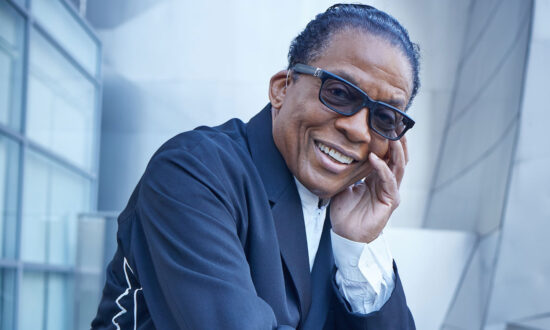The Lev Vlassenko Piano Competition continues to prepare young pianists for the rigours of the world of music.
Queensland Conservatorium pianists Natasha Vlassenko and Oleg Stepanov, both senior lecturers at Griffith University, founded the Queensland-based bi-annual piano competition 25 years ago in honour of Vlassenko’s late father, Lev Vlassenko, a phenomenal pianist, teacher and a world-acclaimed champion of the instrument.
Barry Douglas is this year’s chair of international jurors, which includes Jania Aubakirova and Etsuko Terada. It is a position Douglas also occupied in 2022. On the phone from Ireland, he says the role requires him to, “inspire, direct and be tough”.
Douglas laughs when I remind him he once said “competitions are the worst inventions ever” and “a musician’s job is to interpret, not compete”.
Like them or not, musicians tend to have a love-hate relationship with competitions. On the one hand, they provide performance experience and the chance to learn how to manage nerves in pressured situations. On the negative side, critics argue piano competitions reward conformity, dull interpretation and pulse-racing speed, glossing over musical meaning. Yet they are all part and parcel of an aspiring performer’s journey.
Another criticism targets the frequently restrictive repertoire choices that give new and adventurous pieces a wide berth. Not so in this contest, because the Vlassenko board has added a new category. Now semi-finalists must perform a personal choice piece of 15-minutes duration, which can be an Australian work by Peter Sculthorpe, Elena Kats-Chernin, Carl Vine or others.
Despite all the naysayers, international and national piano trials continue to flourish, appealing not only to participants but also to audiences who relish the gladiatorial sparring between gifted rivals. Young pianists thrive on goals to work towards and they need performance opportunities of all kinds to improve their playing.
Douglas confesses he has a deep respect for this competition because he knew Lev Vlassenko, who used to give him pep talks.
“When I was playing Brahms Piano Concerto no 1 in 1986, he told me to be careful in the second movement and be sure to keep the pulse going and imitate the bassoons’ fluid lines of consecutive thirds,” Douglas says. “Harder to do, of course, on the piano, a percussive instrument.”
Winning a clutch of competitions can fast-track a career. Douglas took home the gold medal in the International Tchaikovsky Competition in 1986. He was the first non-Russian to do so and this win and others launched his impressive career.
Queenslander Jayson Gilham, now based in London, reached the Lev Vlassenko semi-finals twice and went on to win the Leeds International Piano Competition, the Van Cliburn International Piano Competition and the International Chopin Piano Competition.

Get InReview in your inbox – free each Saturday. Local arts and culture – covered.
Thanks for signing up to the InReview newsletter.
“Finalists perform a concerto with the Queensland Symphony Orchestra which is such a privilege,” says Gilham.
Tian Tan Lan, who came second in 2022, says he found playing with the immense power of around 80 instrumentalists a thrilling experience.
Preparing to be a solo pianist can be isolating. For this reason, the Lev Vlassenko Piano Academy has been founded to offer social, networking, performance and educational opportunities. Players between the ages of 6 and 12 can participate in Little Lev Piano Academy’s activities.
As to what Douglas is looking for in a winner, he says: “If you are moved and you feel as if your life has changed in the space of a few minutes then you know you are onto something.”
Are competitor interpretations dull and without risk?
“There are too many tourists travelling the world to compete,” he says. “A serious contender has something to say and will not be playing it safe but, neither will they be delivering a weird and reckless take for the sake of it.”
Finalists from the Senior and Young Competitions will perform with the Queensland Symphony Orchestra on July 13 at the Conservatorium Theatre at South Bank.
Support local arts journalism
Your support will help us continue the important work of InReview in publishing free professional journalism that celebrates, interrogates and amplifies arts and culture in South Australia.
Donate Here




